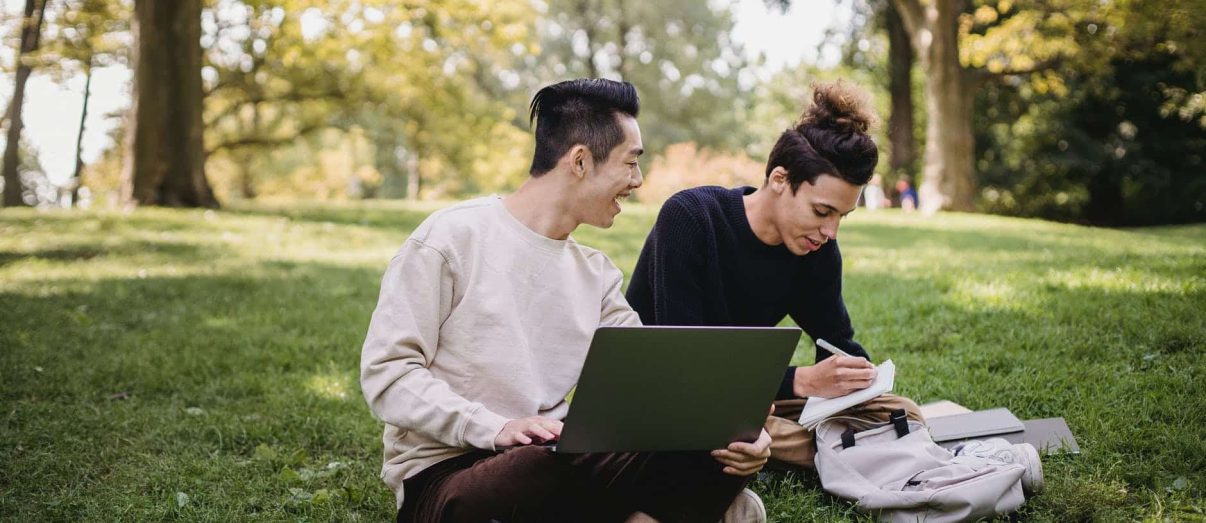Whether you are a first or final year medical student, you’ll agree that every student has a unique studying style that best suits them. The challenge is, finding your best way to study early on and implementing the right techniques that will allow you to optimise your time to ensure you’re getting maximum benefit. It’s all about that concept of working smarter, not harder.
Unfortunately with the vocation you’ve chosen, your studying days won’t end as you say goodbye to student life. These skills will almost become more important during your doctor in training years as you have to juggle balancing working life with ongoing professional development and exam prep.
If you’re looking to ‘up’ your study game for semester two, check out these Instagram recommendations from fellow med students, who share techniques and tips that have helped them through their med school journey.
Top 5 studying tips from Medical Student Studygram accounts
Simply ask questions
“There’s no such thing as a silly question”, we have all heard it before, and guess what…IT IS TRUE!
The benefits and importance of asking both “silly” and “smart” questions is endless and for students, there is only upside. Asking questions shows that you are eager to learn, apply the knowledge and gain further insight, which will be noticed by your peers and mentors. It can enhance your problem solving skills and improve your overall comprehension of the subject matter.
Third year medical student @emmab_mb includes this as one of her top tips for first year medical students (you can check out the full post here).
Remember, knowledge is power and you can never have enough!
@emmab_mb is President of Macquarie University Medicine Society as well as being actively involved in the Med Mentors Program. Her page is about all things med school, sharing her experience along with study tips and techniques for medical students that can help you get through med school.
Prioritise study intensity over duration
As a medical student, managing your time efficiently is critical to achieving your personal best and maximising your results. Successful time management and finding the right balance between being productive and taking the time you need to have study breaks can be difficult to navigate.
Check out this recent article posted by MedicGuild, which suggests that shorter, but more intense periods of study can increase academic results by minimising procrastination and increasing motivation.
@medicguild is an online community of med students and doctors that work together to build resources which includes podcasts and articles to support those within the industry.
Studying with friends
Studying with uni friends isn’t for everyone, but can be extremely rewarding if conducted correctly.
A productive session with friends who have similar studying objectives, can prove that “two heads are better than one”. As conversations flow, more questions will be generated which can broaden the discussion and provide key new learning opportunities in a relaxed and enjoyable environment.
Med student @sebastianpirie finds studying with friends helps to keep him accountable, particularly during the draining last few weeks of the semester.
@sebastianpirie has built up a large following on Instagram and YouTube and uses these platforms to document his journey through medical school. Check out this video – ‘How to Stop Procrastinating | 7 Productivity Tips’ and subscribe to his channel for more useful study resources.
Nutrition, sleep, exercise, study…REPEAT
As medical students, it is important to prioritise your mental and physical health. Making a conscious effort to create a healthier, happier and calmer version of yourself will only be beneficial in sustaining and improving your learning performance.
Implementing small lifestyle habits will not only positively improve your mental and physical health but enhance your cognitive skills, such as concentration and memory.
According to med student @koffee.stat studying can be 100 x harder without developing good sleep, diet and exercise habits. Check out his dedicated studygram account for more insight, tips and recommendations for getting on top of your learning.
Organisation is key
If colour coding and pretty studying notes isn’t for you, don’t worry… you can still be organised.
With such an intense study schedule, being organised can help you establish a good routine, whilst developing time management skills such as learning how to prioritise tasks. Fortunately, there are so many different ways you can be organised to ensure you utilise your time more effectively.
For some inspiration on how to get started, check out @tiffstudies studygram. In a recent post, Tiff outlines how she remains organised despite a hectic schedule. Some of her top tips include making a to-do list at the start of every day, using Google Calendar for reminders and scheduling, dedicating time to do life administration and meal prep each day before going to bed.
Implementing these studying tips as a medical student can help you establish good study habits and ensure you make the most of your study time, both now and as your career in medicine progresses.
For more study related resources, check out the following articles:
- 5 benefits of having a part-time job while studying medicine
- How exercise helps you study better
- Study tips to get you through exam period
- Getting through self-isolation and studying medicine
* Disclaimer: The information contained in this site is general and is not intended to serve as advice as your personal circumstances have not been considered. DPM Financial Services Group recommends you obtain personal advice concerning specific matters before making a decision.










